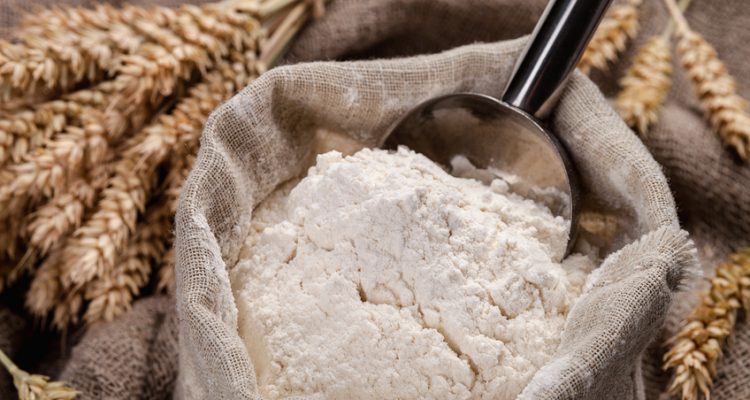
Refined grains like wheat, rye, and corn are produced so the flour which is commercially made from these products has a long shelf life. To make refined grain flour, food producers remove the bran and germ from the grain, leaving the endosperm intact. Although this process makes nice, soft, and smooth flour, it has some obvious nutritional disadvantages. The endosperm contains the starchy carbohydrates contained within the grain, but after removing the bran and germ, all of the fiber, minerals, vitamins, and essential fats are also discarded.
The problem is that this type of flour is high in simple carbohydrates or sugars. The other problem is that, in general, people eat a lot of foods that contain high amounts of white flour. White flour is composed of strands of pure sugar molecules which, after consumption, are digested very quickly, leading to a rapid rise in blood sugar. When this happens, your pancreas secretes a hormone called insulin, which is designed to transport sugar and fat molecules from your blood into your muscles, liver, brain, heart, and fat cells. White flour is also considered to be high on the glycemic index scale. Foods with a high glycemic index are associated with higher amounts of insulin secretion after consumption.
If you eat a lot of these white flour products, your levels of insulin will continue to increase, because your cells will no longer be as sensitive to the insulin protein. To control blood sugar, your pancreas will secrete larger amounts of insulin to lower the raised levels of blood sugar. Unfortunately, high insulin levels aggravate the lack of insulin sensitivity, making this issue much worse. In time, this can lead to high insulin levels, high triglycerides, total cholesterol, low-density lipoprotein (LDL, or “bad”) cholesterol, and lower high-density lipoprotein (HDL, or “good”) cholesterol. The consumption of refined white flour products can also cause increases in stored abdominal body fat, liver fat inflammatory chemicals, blood clotting, and gout-causing uric acid.
That’s why there is a direct relationship between the consumption of refined white flour products and metabolic syndrome, diabetes, gout, obesity, cardiovascular disease, and stroke. In addition, the caloric content of white flour products is considered “empty” because there are no nutrients or fiber contained within this type of food.
I recommend that you try and substitute white flour products with whole grain flour alternatives. It’s not too difficult to do, and it definitely pays off in health benefits.
Sources:
Björck, I., et al., “The glycaemic index: importance of dietary fibre and other food properties,” Proc Nutr Soc. February 2003; 62(1): 201-6.
Ekström, L.M., et al., “On the possibility to affect the course of glycaemia, insulinaemia, and perceived hunger/satiety to bread meals in healthy volunteers,” Food Funct. April 25, 2013; 4(4): 522-9.
Burton, P.M., et al., “Glycemic impact and health: new horizons in white bread formulations,” Crit Rev Food Sci Nutr. December 2011; 51(10): 965-82.













